The Registration is now CLOSED
mouse over the names below for a full bio
Day 1 (Tuesday, 13. May 2025)
10:00 – 11:00
Arrival & Registration with Coffee & Tea
11:00 – 11:15
Keynote Address: “Fostering Trust in Science?”
Speaker: Michael Arentoft (Head of Unit DGRI, European Commission)
11:15 – 11:45
“Building bridges, strengthening trust”: Opening session
Speakers:
Tine Ravn (POIESIS)
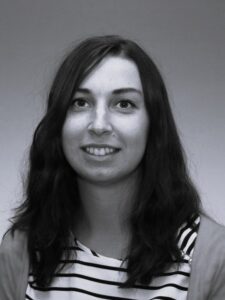 Tine Ravn is a senior researcher at the Danish Centre for Studies in Research and Research Policy within the Department of Political Science at Aarhus University. Her research focuses broadly on national and international sociotechnical transformations at the intersection of science and society. Positioned within the field of science, technology, and innovation (STI) studies, her work emphasizes the ethical, political, social, and epistemic implications of research and technology. In particular, her previous and current research examines trust in science, the social and ethical dimensions of emerging biotechnologies, research integrity, public engagement, STI policies, science governance, and responsible research and innovation (RRI).
Tine Ravn is a senior researcher at the Danish Centre for Studies in Research and Research Policy within the Department of Political Science at Aarhus University. Her research focuses broadly on national and international sociotechnical transformations at the intersection of science and society. Positioned within the field of science, technology, and innovation (STI) studies, her work emphasizes the ethical, political, social, and epistemic implications of research and technology. In particular, her previous and current research examines trust in science, the social and ethical dimensions of emerging biotechnologies, research integrity, public engagement, STI policies, science governance, and responsible research and innovation (RRI).
Hub Zwart (IANUS)
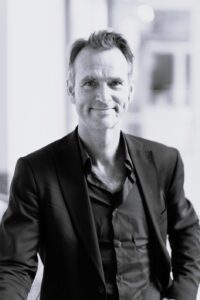 Hub Zwart studied philosophy and psychology at Radboud University Nijmegen and defended his thesis in 1993. In 2000 he became full Professor of Philosophy at the Faculty of Science Radboud University Nijmegen. In 2018 he was appointed as Dean of Erasmus School of Philosophy (Erasmus University Rotterdam). Key publications include two open access monographs: Tales of Research Misconduct (Springer/Nature 2017) and Continental Philosophy of Technoscience (Springer/Nature 2022). He is editor-in-chief of the Library for Ethics and Applied Philosophy (Springer) and has coordinated four European projects including PRINTEGER (on research integrity) and IANUS (on trust in science, ongoing).
Hub Zwart studied philosophy and psychology at Radboud University Nijmegen and defended his thesis in 1993. In 2000 he became full Professor of Philosophy at the Faculty of Science Radboud University Nijmegen. In 2018 he was appointed as Dean of Erasmus School of Philosophy (Erasmus University Rotterdam). Key publications include two open access monographs: Tales of Research Misconduct (Springer/Nature 2017) and Continental Philosophy of Technoscience (Springer/Nature 2022). He is editor-in-chief of the Library for Ethics and Applied Philosophy (Springer) and has coordinated four European projects including PRINTEGER (on research integrity) and IANUS (on trust in science, ongoing).
Agata Gurzawska (VERITY)
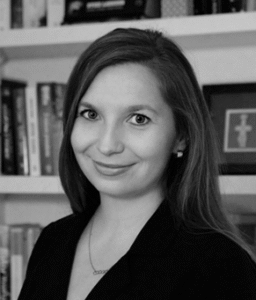
Dr. Agata Gurzawska is a Senior Research Manager and Principal Investigator at Trilateral Research IE, where she leads research on ethics, human rights, and emerging technologies. She coordinates the EU-funded VERITY project on trust in science and has served as an ethics and legal expert on over 15 EU-funded projects. Her work focuses on responsible, ethical, and sustainable innovation, human rights and business, and strategic corporate social responsibility (CSR).
At Trilateral, Agata has contributed to the development of the Human Rights Impact Assessment (HRIA) and Human-Rights-by-Design frameworks, supporting regulatory, policy, and industry efforts to embed ethics- and human rights-by-design in technology development. She has published in journals and edited volumes on responsible innovation, and has collaborated with institutions including the University of Twente, Centre for Business, Organisations and Society (University of Bath) and the Danish Institute for Human Rights.
Georgios Papanagnou (Policy Officer, European Commission)
Georgios Papanagnou is Policy Officer on Public Engagement in R&I at the European Commission. He has worked for a number of years at DG Research and Innovation, with previous stops at UNESCO and academia, focusing on issues of participation in science, democracy, fairness, etc. He holds a PhD in Political Science.
Wainer Lusoli (Deputy Head of Unit at REA Reforming European R&I and Research Infrastructures, European Commission)
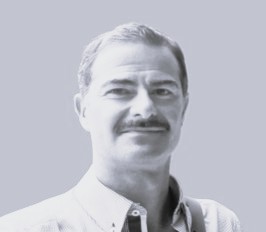
Wainer is a senior expert on science, digital and society at the European Commission. Today, as a deputy head of unit at the European Research Executive Agency, he helps 50+ talented colleagues to build R&I policy, excellent research infrastructures, and the European Research Area.
He spent 20+ years in digital, democracy, science for policy and policy making including Digital Single Market policies (data, eID, privacy) and R&I policies - Open Science and the European Research Area. He moved from academic research and teaching (~10 years), to policy development as civil servant (~15 years). Before REA, he was at Bologna University in Italia, LSE, Unis of Salford and Chester in Britain, Joint Research Centre en España, European Commission in Brussel, Graduate Institute à Genève.
11:45 – 12:45
Setting the scene: Trust in Science in and beyond the sister projects:
Moderator: Steffi Friedrichs (IANUS)
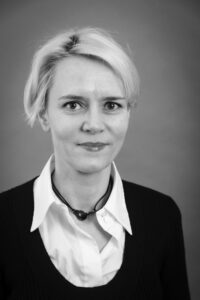 Dr Steffi Friedrichs, Founder & Director of AcumenIST SRL, has been a leading expert, policy advisor and business representative for emerging technological innovation for over 20 years.
Dr Steffi Friedrichs, Founder & Director of AcumenIST SRL, has been a leading expert, policy advisor and business representative for emerging technological innovation for over 20 years.
Steffi made a name for herself as the founder and Director-General of the Nanotechnology Industries Association (NIA) group, where she established novel, collaborative approaches to the political representation of technology-based companies.
Having thus initiated numerous large-scale public-private collaborations and created channels for industries’ contributions to both international and national regulatory processes, Steffi subsequently worked for the OECD, where she developed its definition, indicators and impact assessment of biotechnology, nanotechnology, and other converging technologies, and led two international technology policy workshops on genome editing.
Wishing to support the advancement of transparent, science-based policy-making, Steffi gathered a strong track record in the establishment, development and representation of technology-based companies, and created and ran participatory technology assessment workshops. She initiated several outreach and communication initiatives to foster the public understanding of novel technologies. She was a Co-Founder and Member of the Board of Directors of the Chicago Micro- & Nanotechnology Community (CMNC), Director of the Master’s Programme in Micro- and Nanotechnology at the University of Cambridge, and Lecturer in Inorganic Chemistry and Solid State Chemistry at the University of Oxford.
Speakers:
Tine Ravn (POIESIS)
 Tine Ravn is a senior researcher at the Danish Centre for Studies in Research and Research Policy within the Department of Political Science at Aarhus University. Her research focuses broadly on national and international sociotechnical transformations at the intersection of science and society. Positioned within the field of science, technology, and innovation (STI) studies, her work emphasizes the ethical, political, social, and epistemic implications of research and technology. In particular, her previous and current research examines trust in science, the social and ethical dimensions of emerging biotechnologies, research integrity, public engagement, STI policies, science governance, and responsible research and innovation (RRI).
Tine Ravn is a senior researcher at the Danish Centre for Studies in Research and Research Policy within the Department of Political Science at Aarhus University. Her research focuses broadly on national and international sociotechnical transformations at the intersection of science and society. Positioned within the field of science, technology, and innovation (STI) studies, her work emphasizes the ethical, political, social, and epistemic implications of research and technology. In particular, her previous and current research examines trust in science, the social and ethical dimensions of emerging biotechnologies, research integrity, public engagement, STI policies, science governance, and responsible research and innovation (RRI).
Hub Zwart (IANUS)
 Hub Zwart studied philosophy and psychology at Radboud University Nijmegen and defended his thesis in 1993. In 2000 he became full Professor of Philosophy at the Faculty of Science Radboud University Nijmegen. In 2018 he was appointed as Dean of Erasmus School of Philosophy (Erasmus University Rotterdam). Key publications include two open access monographs: Tales of Research Misconduct (Springer/Nature 2017) and Continental Philosophy of Technoscience (Springer/Nature 2022). He is editor-in-chief of the Library for Ethics and Applied Philosophy (Springer) and has coordinated four European projects including PRINTEGER (on research integrity) and IANUS (on trust in science, ongoing).
Hub Zwart studied philosophy and psychology at Radboud University Nijmegen and defended his thesis in 1993. In 2000 he became full Professor of Philosophy at the Faculty of Science Radboud University Nijmegen. In 2018 he was appointed as Dean of Erasmus School of Philosophy (Erasmus University Rotterdam). Key publications include two open access monographs: Tales of Research Misconduct (Springer/Nature 2017) and Continental Philosophy of Technoscience (Springer/Nature 2022). He is editor-in-chief of the Library for Ethics and Applied Philosophy (Springer) and has coordinated four European projects including PRINTEGER (on research integrity) and IANUS (on trust in science, ongoing).
Agata Gurzawska (VERITY)

Dr. Agata Gurzawska is a Senior Research Manager and Principal Investigator at Trilateral Research IE, where she leads research on ethics, human rights, and emerging technologies. She coordinates the EU-funded VERITY project on trust in science and has served as an ethics and legal expert on over 15 EU-funded projects. Her work focuses on responsible, ethical, and sustainable innovation, human rights and business, and strategic corporate social responsibility (CSR).
At Trilateral, Agata has contributed to the development of the Human Rights Impact Assessment (HRIA) and Human-Rights-by-Design frameworks, supporting regulatory, policy, and industry efforts to embed ethics- and human rights-by-design in technology development. She has published in journals and edited volumes on responsible innovation, and has collaborated with institutions including the University of Twente, Centre for Business, Organisations and Society (University of Bath) and the Danish Institute for Human Rights.
Commentator: René von Schomberg (RWTH Aachen)

Dr. Dr.phil. René von Schomberg is a philosopher and STS scholar. He is currently a Senior Research Fellow at RWTH Aachen University.
He was an European Commission official from 1998-2021. He is author/co-editor of 15 books, among other, the first editor of the International Handbook on Responsible Innovation. A Global Resource (2019). He has worked extensively on the issues of science-for-policy, research and innovation policy, deliberative democracy, technology assessment, ethical and socio-economic aspects of emerging technologies, the precautionary principle, open science and responsible innovation. He is running a blog with free OA resources: http://renevonschomberg.wordpress.com.
He also authored the recently published ‘Trust as Governance Challenge for Science for Policy Ecosystems’, which was prepared for a mutual learning exercise with 16 EU Member States. Free down load here https://doi.org/10.2777/6569914.
LinkedIn profile:
Rene Von Schomberg – Kate Hamburger Kolleg Cultures of Research RWTH University of Aachen | LinkedIn
12:45 – 13:45
Lunch Break
13:45 – 15:00
Advancing Policy, Implementing Recommendations: IANUS, POIESIS, and VERITY’s three-year journey
Moderator: Steffi Friedrichs (IANUS)
 Dr Steffi Friedrichs, Founder & Director of AcumenIST SRL, has been a leading expert, policy advisor and business representative for emerging technological innovation for over 20 years.
Dr Steffi Friedrichs, Founder & Director of AcumenIST SRL, has been a leading expert, policy advisor and business representative for emerging technological innovation for over 20 years.
Steffi made a name for herself as the founder and Director-General of the Nanotechnology Industries Association (NIA) group, where she established novel, collaborative approaches to the political representation of technology-based companies.
Having thus initiated numerous large-scale public-private collaborations and created channels for industries’ contributions to both international and national regulatory processes, Steffi subsequently worked for the OECD, where she developed its definition, indicators and impact assessment of biotechnology, nanotechnology, and other converging technologies, and led two international technology policy workshops on genome editing.
Wishing to support the advancement of transparent, science-based policy-making, Steffi gathered a strong track record in the establishment, development and representation of technology-based companies, and created and ran participatory technology assessment workshops. She initiated several outreach and communication initiatives to foster the public understanding of novel technologies. She was a Co-Founder and Member of the Board of Directors of the Chicago Micro- & Nanotechnology Community (CMNC), Director of the Master’s Programme in Micro- and Nanotechnology at the University of Cambridge, and Lecturer in Inorganic Chemistry and Solid State Chemistry at the University of Oxford.
Panelists:
Juliana Chaves (UNESCO)
 With a background on Environmental scientist, DEA in Spatial planning and finalizing her PhD research on the co-design of STI policies to enhance the societal impact of science in Africa, LAC and Europe. Ms. Chaves-Chaparro, is Senior consultant in the UNESCO Management of Social Transformation' (MOST) Section (Social Sciences and Humanities Sector) and WP leader coordinating the revision of the EU Researcher Assessment Framework (RAF) and the production of policy advise to incentivise Open and Responsible Research and Innovation practices under the Horizon Europe Open Universal Science (OPUS) project. She holds more than 25 years of international working experience in the promotion of the science-policy-society interface, specially in Africa and LAC regions, including from the practitioner side, in charge of the Social Impact Assessment and gender mainstreaming of the FIC-fighters project. In her aim to connect deeper with societal needs, she is the founder and President of MiXtura -an NGO combining experts from natural and social sciences with artists and local knowledge holders in rural areas and Global South. She is co-author of various UNESCO and scientific papers and member of the advisory board of VERITY project for trust in science, Reinforcing and the ORRI REINFORCING global Network among others.
With a background on Environmental scientist, DEA in Spatial planning and finalizing her PhD research on the co-design of STI policies to enhance the societal impact of science in Africa, LAC and Europe. Ms. Chaves-Chaparro, is Senior consultant in the UNESCO Management of Social Transformation' (MOST) Section (Social Sciences and Humanities Sector) and WP leader coordinating the revision of the EU Researcher Assessment Framework (RAF) and the production of policy advise to incentivise Open and Responsible Research and Innovation practices under the Horizon Europe Open Universal Science (OPUS) project. She holds more than 25 years of international working experience in the promotion of the science-policy-society interface, specially in Africa and LAC regions, including from the practitioner side, in charge of the Social Impact Assessment and gender mainstreaming of the FIC-fighters project. In her aim to connect deeper with societal needs, she is the founder and President of MiXtura -an NGO combining experts from natural and social sciences with artists and local knowledge holders in rural areas and Global South. She is co-author of various UNESCO and scientific papers and member of the advisory board of VERITY project for trust in science, Reinforcing and the ORRI REINFORCING global Network among others.
Anastasia Deligkiaouri (JRC)
 Anastasia Deligkiaouri (PhD) is a policy analyst at JRC-European Commission, and she is in charge of the Learning and Development activities of Unit S2 on ‘Science for Democracy and Evidence Informed Policy making’ (EIPM). Anastasia is an experienced lecturer and researcher and she has delivered trainings on Science for Policy and Evidence Informed Policymaking at several organisations and at the TSI project on ‘Capacity building in EIPM’ in which 7 EU member states are participating. The project was funded by DG Reform and jointly implemented by JRC and OECD. Anastasia holds a PhD in Public Law and Political Science and she has previously worked as an academic and researcher for over 15 years in Greece, UK and Ireland in the area of Political science with emphasis on European studies, Policy analysis, Democracy and Deliberation. Her work is published in academic journals and books.
Anastasia Deligkiaouri (PhD) is a policy analyst at JRC-European Commission, and she is in charge of the Learning and Development activities of Unit S2 on ‘Science for Democracy and Evidence Informed Policy making’ (EIPM). Anastasia is an experienced lecturer and researcher and she has delivered trainings on Science for Policy and Evidence Informed Policymaking at several organisations and at the TSI project on ‘Capacity building in EIPM’ in which 7 EU member states are participating. The project was funded by DG Reform and jointly implemented by JRC and OECD. Anastasia holds a PhD in Public Law and Political Science and she has previously worked as an academic and researcher for over 15 years in Greece, UK and Ireland in the area of Political science with emphasis on European studies, Policy analysis, Democracy and Deliberation. Her work is published in academic journals and books.
Jim Dratwa (European Commission)

Jim Dratwa’s research addresses the interconnections between knowledge, values, and action. He has served in several positions of responsibility in that regard at the European Commission, as member of BEPA (the Bureau of European Policy Advisers to the President), at the EPSC (the European Political Strategy Centre) and in the Directorate-General for Research and Innovation. At the European Commission he has been leading the team tasked with Ethics in Science and New Technologies and is the EC representative in the international organizations dealing with the ethics and governance of science and new technologies. He heads the team tasked with Science for Policy.
His degrees are in physics, philosophy, politics and the life sciences, he received the Fulbright Scholar Award, was Harvard Boas Fellow, Ramón y Cajal Scholar, and was pre- and post-doctoral Fellow at Harvard Kennedy School, in the Belfer Center for Science and International Affairs and with the program on Science, Technology, and Society. He was also made a Global Fellow of the Woodrow Wilson Center, Washington, DC.
Bringing together Science and Technology Studies, systems thinking and philosophy, as well as his policy work, he has published widely on the interplay between sustainability and digital and democracy. His latest book, Ethics of Transitions: What world do we want to live in together?, is a journey of reconsideration – indeed reimagination – of democracy, of our relations, and of the world.
Suzanne Dumouchel (EOSC/OPERAS)
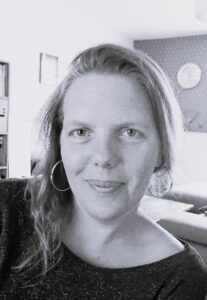
Suzanne Dumouchel has a doctorate in French literature and is in charge of international cooperation at the CNRS's Open Research Data Directorate. She is co-coordinator of the OPERAS European research infrastructure devoted to open scientific communication in the humanities and social sciences. In charge of strategic partnerships, she steers the vision and strategic development of the infrastructure.
She is also Director of the European Open Science Cloud (EOSC), which brings together more than 200 scientific organisations in Europe and around the world.
Strongly committed to the Open Science movement, she is particularly active in the field of research infrastructures and the strategic management of organisations, with a particular interest in innovative technologies, collective governance and disinformation issues.
Shaofeng Hu (UNESCO)
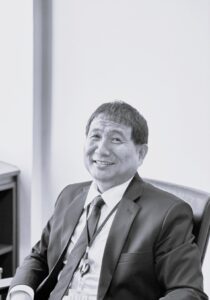
Mr. Hu presently serves as the Director of the Division of Science Policy and Basic Sciences at the United Nations Educational, Scientific and Cultural Organization (UNESCO) since April 2023. He is coordinating the implementation of the International Decade of Sciences for Sustainable Development, leading the implementation of the UNESCO’s Recommendation on Open Sciences, promoting international cooperation on basic sciences, as well as science, technology and innovation policy formation and implementation, STEM education, and science popularization, etc.
Mr. Hu has worked in the United Nations Environment Programme (UNEP) for 23 years. Within this capacity, Mr. Hu assumed multiple roles, including Programme Officer, sub-Regional Coordinator, and Senior Regional Coordinator for Asia Pacific. His responsibilities encompassed providing comprehensive policy and technical support, facilitating national strategy formulation and implementation, fostering institutional capacity, advancing science and technology dissemination, and enhancing public awareness. His primary focus centered on aiding developing countries in the region in implementing the Montreal Protocol and mitigating climate change challenges.
Mr. Hu worked on the Montreal Protocol's implementation at the predecessor organization of China's Ministry of Ecology and Environment from 1994 to 1999. Preceding this, he engaged in four years of research work at the Chinese Academy of Environmental Sciences.
Mr. Hu earned both his bachelor's and master's degrees from Peking University in China.
Georgios Papanagnou (Policy Officer, European Commission)
 Georgios Papanagnou is Policy Officer on Public Engagement in R&I at the European Commission. He has worked for a number of years at DG Research and Innovation, with previous stops at UNESCO and academia, focusing on issues of participation in science, democracy, fairness, etc. He holds a PhD in Political Science.
Georgios Papanagnou is Policy Officer on Public Engagement in R&I at the European Commission. He has worked for a number of years at DG Research and Innovation, with previous stops at UNESCO and academia, focusing on issues of participation in science, democracy, fairness, etc. He holds a PhD in Political Science.
Maciej Woszczyk (NCBR/INSPIRING ERA)
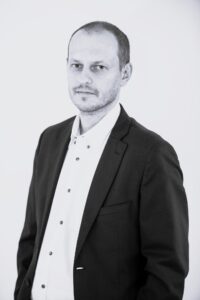
Maciej Woszczyk is a policy advisor at the National Centre for Research and Development (NCBR) Office in Brussels. His primary focus is Horizon Europe's Cluster 5 and different European Green Deal strands, he engages also with overarching policies of the European Research Area. Previously, he was involved in implementing cohesion and structural policies at the national level and initiating pre-commercial procurement projects in R&I, particularly within the energy and transport sectors.
Being part of the INSPIRING ERA project, he tackles particularly INSPIRING ERA Exchanges, workshops aimed at mutual learning and knowledge exchange. As the project seeks to enhance the implementation of the ERA Policy Agenda(s) by fostering awareness, sharing best practices, and accelerating the adoption of its outcomes across EU Member States and Associated Countries, he has so far pursued these goals within ERA Action 4 (research careers) and Action 14 (bring science closer to citizens).
15:00 – 15:15
Introduction to the Concept & Format of the World Café Session
Speakers:
Eleni Spyrakou (POIESIS)
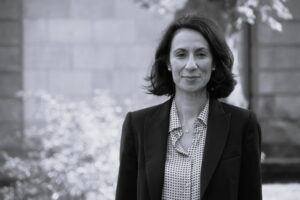 Eleni Spyrakou is a senior researcher at the School of Chemical Engineering of the National Technical University of Athens. She has studied Philosophy (BA Hons, University of Patras), and she holds an MPhil in Philosophy focusing on Ethics and Political philosophy (King’s College London, UK) and a PhD (Hons) in Political Philosophy (University of Ioannina, Greece). Her main research interests include applied ethics (bioethics, environmental ethics, business ethics, research ethics and integrity), political philosophy, the ethics-politics relation and its epistemological problems, the methodology of social sciences. During the last 6 years her research has been focused on research ethics and research integrity through her participation in a number of Horizon 2020 and Horizon Europe “Science with and for Society” EU-funded projects. She was a member of the local organising committee of the 8th World Conference on Research Integrity (Athens, 2-5 June 2024).
Eleni Spyrakou is a senior researcher at the School of Chemical Engineering of the National Technical University of Athens. She has studied Philosophy (BA Hons, University of Patras), and she holds an MPhil in Philosophy focusing on Ethics and Political philosophy (King’s College London, UK) and a PhD (Hons) in Political Philosophy (University of Ioannina, Greece). Her main research interests include applied ethics (bioethics, environmental ethics, business ethics, research ethics and integrity), political philosophy, the ethics-politics relation and its epistemological problems, the methodology of social sciences. During the last 6 years her research has been focused on research ethics and research integrity through her participation in a number of Horizon 2020 and Horizon Europe “Science with and for Society” EU-funded projects. She was a member of the local organising committee of the 8th World Conference on Research Integrity (Athens, 2-5 June 2024).
Kalypso Iordanou (VERITY)
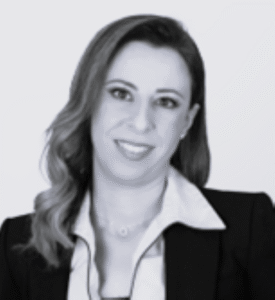
Kalypso Iordanou is a Professor of Psychology and Director of the Thinking Lab at UCLan Cyprus. Her research focuses on developing argument skills, epistemic cognition, and critical thinking. She is involved in several EU-funded projects (VERITY, BEYOND, SMIDGE) addressing urgent societal challenges like trust in science, research integrity, and misinformation. Dr. Iordanou received her Ph.D. from Columbia University in New York (USA) and has been recognized with the Cyprus Research Award and Fulbright Award. Currently she serves as an Associate Editor of the APA's Journal of Educational Psychology..
15:15 – 15:45
Coffee & Tea Break
15:45 – 17:40
Co-Creative World Café of ‘Trust in Science’
Moderator: Lisa Häberlein (VERITY)
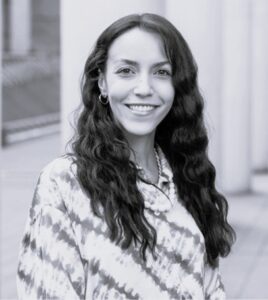
Lisa Häberlein is a Research Project Manager and Co-Team Leader at the European Network of Research Ethics Committees (EUREC). As a workpackage leader, she is involved in various EU-funded projects focused on Responsible Research and Innovation (RRI), Research Ethics (RE), and Research Integrity (RI), including VERITY, STRATEGIC, ROSiE, ETHNA System, and Path2Integrity. With a strong academic background in Philosophy, Interdisciplinary Ethics, and Education, Lisa has a deep research interest in moral concerns. She is actively involved in the Department of Medical Ethics and Human Rights at FAU Erlangen-Nuremberg, the Council for Research in Values and Philosophy (CRVP), and the Network of Young Ethics Experts of Medical Ethics Committees in Germany (AKEK).
Facilitators:
Amalia Kallergi (IANUS)
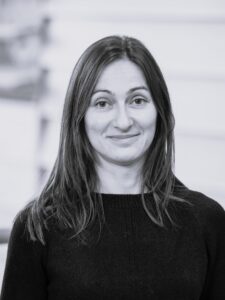
Amalia Kallergi is a postdoctoral researcher at the Institute for Science in Society, Radboud University, the Netherlands. Her work considers the ethical and societal implications of the life sciences and the various ways to include societal needs and values into research and innovation. Ask me about frameworks that aspire to develop (bio)technologies in a more responsible manner (Responsible Research and Innovation; Safe-by-design) and about creative platforms for public engagement.
Gabor Szüdi (VERITY)
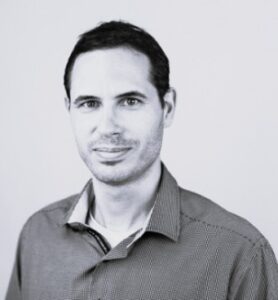
Gábor Szüdi is a Researcher and Project Manager at the Vienna-based private non-profit research institute Centre for Social Innovation (ZSI). He works in the Department of Research Policy and Development with a research focus on how to make research and innovation policies more inclusive and sustainable, also in an international cooperation context. Currently he is involved in several EU-funded projects, including VERITY, ACCTING, Reconnect China and STECCI with various responsibilities. With a proven academic track record in political science and international relations, Gábor has an interest in the factors shaping society’s perception in science and scientific knowledge production.
Evren Yalaz (VERITY)
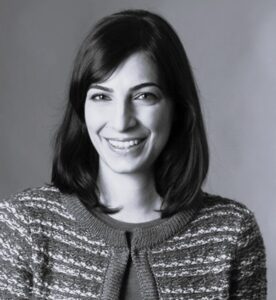
Evren Yalaz is a Senior Research Analyst at Trilateral Research, where she focuses on societal trust in science, research ethics and integrity, responsible AI, and research design and qualitative research methods. She is currently involved in several European projects, including VERITY, MEMENTOES, and MAMMOth, contributing her expertise to support ethical and socially responsible approaches to science and technology. She holds a PhD in Political Science from Rutgers University and brings an interdisciplinary perspective to her work at the intersection of policy, ethics, and innovation.
Anne-Sophie Behm-Bahtat (POIESIS)
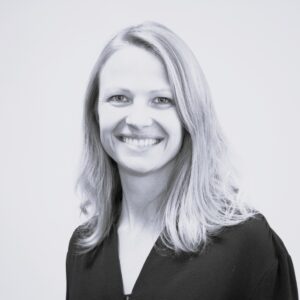
Anne-Sophie Behm-Bahtat is programme lead and researcher at Wissenschaft im Dialog (WiD) which is the German national organisation for science communication. She has a background in European Studies and Political Science and obtained her PhD from the Université Libre de Bruxelles (Belgium) with a thesis entitled "Out of Sight, Out of Mind? An Analysis of MEPs' Focus on Territories in Parliament". Anne-Sophie's current work focuses on public trust in science and, more broadly, on the relationship between science and society from different angles. Her research interests further include democracy, representation and Euroscepticism.
Hendrik Berghäuser (IANUS)
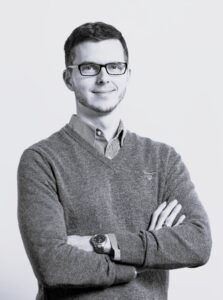 Hendrik Berghäuser is a project manager in the Department Policy and Society at Fraunhofer Institute for Systems and Innovation Research ISI in Karlsruhe, Germany. Since 2013, he has been working on numerous studies and evaluations on science, technology and innovation policies.
Hendrik holds a PhD in Political Science and Economics (2019) from the German University for Administrative Science Speyer, a diploma for political science (2012) from the Free University of Berlin and in addition a Bachelor of Science in economics (2012) from Humboldt University in Berlin. He completed study and research visits at the University of California in San Diego (USA) and the University of Oslo (Norway).
A major focus of his work is the programmatic evaluation of funding programmes for science, technology and innovation (STI) at state, federal and EU level. His research focusses on knowledge transfer and the third mission of universities as well as the role of science in society in general.
Hendrik Berghäuser is a project manager in the Department Policy and Society at Fraunhofer Institute for Systems and Innovation Research ISI in Karlsruhe, Germany. Since 2013, he has been working on numerous studies and evaluations on science, technology and innovation policies.
Hendrik holds a PhD in Political Science and Economics (2019) from the German University for Administrative Science Speyer, a diploma for political science (2012) from the Free University of Berlin and in addition a Bachelor of Science in economics (2012) from Humboldt University in Berlin. He completed study and research visits at the University of California in San Diego (USA) and the University of Oslo (Norway).
A major focus of his work is the programmatic evaluation of funding programmes for science, technology and innovation (STI) at state, federal and EU level. His research focusses on knowledge transfer and the third mission of universities as well as the role of science in society in general.
Richard Woolley (POIESIS)
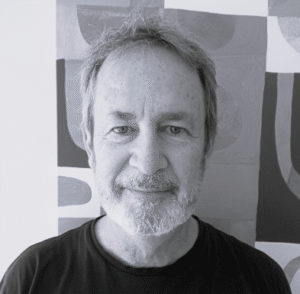
Richard Woolley is a sociologist working on science and research policy and innovation. He is currently participating in projects on the societal impact of scientific research (OSIRIS) led the TIK Centre at the University of Oslo, Norway, and on the development of a monitoring framework for open and responsible research and innovation (SUPER MoRRI) led by Fraunhofer ISI, Germany. Richard’s other research interests include the role of technical occupations in research and innovation, research careers, and understanding how innovation can at times work to amplify social inequality. Prior to moving to INGENIO in 2011, Richard worked in Australia and participated in research centred on the South-East Asia and Pacific regions.
Rapporteurs: TBD during the event
17:40 – 18:00
short presentations
Moderator: Lisa Häberlein (VERITY)

Lisa Häberlein is a Research Project Manager and Co-Team Leader at the European Network of Research Ethics Committees (EUREC). As a workpackage leader, she is involved in various EU-funded projects focused on Responsible Research and Innovation (RRI), Research Ethics (RE), and Research Integrity (RI), including VERITY, STRATEGIC, ROSiE, ETHNA System, and Path2Integrity. With a strong academic background in Philosophy, Interdisciplinary Ethics, and Education, Lisa has a deep research interest in moral concerns. She is actively involved in the Department of Medical Ethics and Human Rights at FAU Erlangen-Nuremberg, the Council for Research in Values and Philosophy (CRVP), and the Network of Young Ethics Experts of Medical Ethics Committees in Germany (AKEK).
Rapporteurs: TBC
from 18:00 …
Walking Dinner (until 20:00)
Day 2 (Wednesday, 14. May 2025)
09:00 – 10:30
From the World-Café to policy-making: Outcomes, Discussions and Highlights
Moderators:
Hendrik Berghäuser (IANUS)

Hendrik Berghäuser is a project manager in the Department Policy and Society at Fraunhofer Institute for Systems and Innovation Research ISI in Karlsruhe, Germany. Since 2013, he has been working on numerous studies and evaluations on science, technology and innovation policies.
Hendrik holds a PhD in Political Science and Economics (2019) from the German University for Administrative Science Speyer, a diploma for political science (2012) from the Free University of Berlin and in addition a Bachelor of Science in economics (2012) from Humboldt University in Berlin. He completed study and research visits at the University of California in San Diego (USA) and the University of Oslo (Norway).
A major focus of his work is the programmatic evaluation of funding programmes for science, technology and innovation (STI) at state, federal and EU level. His research focusses on knowledge transfer and the third mission of universities as well as the role of science in society in general.
Declan Kirrane (Science Summit, UN)
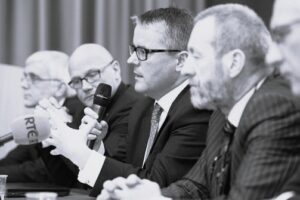 Declan Kirrane is the Founder and Managing Director of ISC Intelligence in Science, Chairman and managing director of the Science Summit at the United Nations General Assembly, co-founder of Medicines for Future (MAF), Chairman of the Science For All 501(c)(3) Foundation and Director of the Africa-Europe Science Collaboration Forum (AERAP). He has over 25 years of experience as a global senior adviser to governments and industry on science policy and related regulation.
Declan Kirrane is the Founder and Managing Director of ISC Intelligence in Science, Chairman and managing director of the Science Summit at the United Nations General Assembly, co-founder of Medicines for Future (MAF), Chairman of the Science For All 501(c)(3) Foundation and Director of the Africa-Europe Science Collaboration Forum (AERAP). He has over 25 years of experience as a global senior adviser to governments and industry on science policy and related regulation.
With Financial Times, he was the launch editor of CORDIS, the European Commission’s research information Service. He was Editor-in-Chief of the Commission’s Innovation and Technology Transfer Newsletter and CORDIS focus. His expertise covers ICT, Health, Defence, Space, Science Policy, GDPR and AI regulation and legislation, EU R&D and Innovation policies, programmes and funding instruments. He has worked extensively on science policy evaluation methodologies and technology options for policy, and decision-makers use investment in science for broader economic development and competitiveness. With the Office of Science in the US Department of Energy, he launched the Ford Foundation Bellagio Process on science policy evaluation methodologies.
Declan Kirrane played a pivotal role in the South African government’s successful bid to host the Square Kilometre Array Radio Telescope, the SKA. His strategic leadership and influence led South Africa and its partner countries to secure the rights to build the SKA in South Africa. The Economist has recognised the SKA, now an Inter-Governmental Organisation(IGO), as the world's largest science project when completed in 2030. He also manages the Africa-Europe Science and Innovation Platform, AERAP.
He is the lead author of Chapter 5 of the UN’s Financing: Guidebook for the Development and Implementation of Science, Technology and Innovation (STI) for the SDGs Roadmap for the Six Transitions, which is scheduled to be launched at the UN’s Decadal Financing for Development Madrid Summit (FfD4) on 30 June 2025.
Since 2010, Declan Kirrane has been a driving force in advocating for a more significant role for science within the United Nations General Assembly. His unwavering commitment led to the establishment of the annual Science Summit within the General Assembly, a platform that engages and inspires stakeholders in the field of science. The upcoming 12th Edition—SSUNGA80—is a testament to his dedication and will take place from 9 to 26 September 2025..
10:30 – 11:00
Coffee & Tea Break – Departure of the non project partners
11:00 – 13:00
CLOSED Meetings (project partners only)
13:00 – 14:00
Lunch Break
14:00 – 18:00
CLOSED Meetings (project partners only)
The VERITY – IANUS – POIESIS Sister Project Joint Final Event will be held at:
Talk C.E.C.
Chaussee de Wavre 143
1050 Ixelles (Brussels), Belgium
Practical Information
How to get to Talk C.E.C.:
Use public transport, if possible.
Accommodation:
The following list provides some suggestions (but no endorsement or recommendation) of accommodation close to Talk C.E.C.: